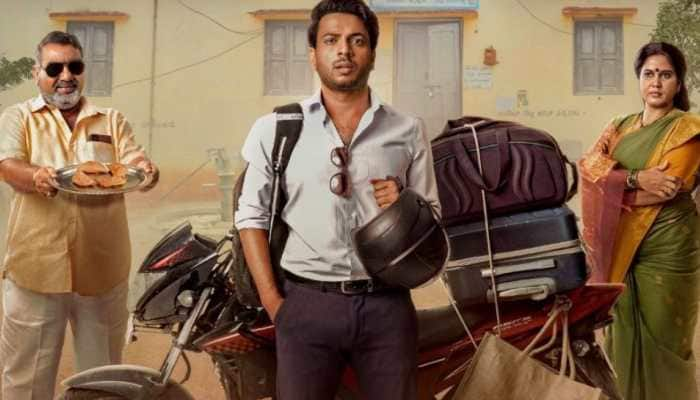Juvenile Justice Bill: All you need to know
Here is all you need to know about the Juvenile Justice Act, which is set to be debated in the Rajya Sabha on Tuesday.
Trending Photos
)
New Delhi: The Rajya Sabha is due to take up the Juvenile Justice (Care and Protection of Children) Bill, 2015 for consideration and passage on Tuesday. Parliamentarians decided to cut across party lines to seek the passage of the amendments to the Juvenile Justice Act after the Supreme Court's dismissal of a plea against the release of the juvenile offender in the December 16 gang-rape case.
Here is all you need to know about the Juvenile Justice Act.
The Juvenile Justice Bill
The bill seeks to treat juveniles between 16 to 18 years as adults for committing heinous crimes such as rape. The bill has been languishing in the Upper House since the budget session.
Who is a juvenile?
Any juvenile or child who is below 18 years. According to the Indian Penal Code no child can be charged with a crime until they are at least seven years old.
Need for a new bill?
Under the existing act, the government face implementation hurdles and procedural delays. The National Crime Records Bureau (NCRB) data also underscores a surge in juvenile crime, especially in the 16-18 age bracket. After the December 16 gang-rape case, there was a massive outcry for a stricter debate amid calls for lowering the age of juvenile criminals to 16, especially in the case of heinous crimes such as murder or rape.
Framework of the new bill
The Juvenile Justice (Care and Protection of Children) Act, 2000 provides the framework to deal with children who are in conflict with law and children in need of care and protection. The bill seeks to replace the existing 2000 Act and lays down the procedures to deal with both categories of children.
The bill also calls for setting up of two main bodies - Juvenile Justice Boards (JJBs) and Child Welfare Committees (CWCs) - that will deal with these children in each district. It also provides details regarding adoption processes and penalties applicable under the law.
The Bill provides for children between 16-18 years to be tried as adults for heinous crimes, which are defined as: (i) a heinous offence is an offence that attracts a minimum penalty of seven years imprisonment under any existing law, (ii) a serious offence is one that gets imprisonment between three to seven years and, (iii) a petty offence is penalized with up to three years imprisonment.
How to deal with a juvenile in conflict with law?
Under the 2000 Act, any child in conflict with law, regardless of the type of offence committed, may spend a maximum of three years in institutional care (special home, etc.) The child cannot be given any penalty higher than three years, nor be tried as an adult and be sent to an adult jail. The proposed bill treats all children under the age of 18 years in a similar way, except for one departure. It states that any 16-18 year old who commits a heinous offence may be tried as an adult. The JJB shall assess the child’s mental and physical capacity, ability to understand consequences of the offence, etc. On the basis of this assessment, a children’s court will determine whether the child is fit to be tried as an adult.
What are the observations of the standing committee on the bill?
The standing committee on human resource development examining the bill stated the NCRB data was misleading as it was based on FIRs and not actual convictions. It also observed that the bill violates some constitutional provisions and said that the approach towards juvenile offenders should be reformative and rehabilitative. The bill as introduced posed certain constitutional violations to Article 14, 20(1) and 21. These have been addressed by deletion of the relevant clause, at the time of passing the bill in Lok Sabha.
What does the UN Convention on the Rights of the Child say?
The UNCRC was ratified by India in 1992 and the 2000 Act was consequently brought in to adhere to the standards set by the Convention. The proposed Bill maintains this aim and seeks to improve implementation and procedural delays experienced by the 2000 Act. The UNCRC states that signatory countries should treat every child under the age of 18 years in the same manner and not try them as adults. While the 2000 Act complies with this requirement, the Bill does not. However, many other countries who have also ratified the Convention try juveniles as adults, in case of certain crimes. These countries include the UK, France, Germany, etc. The United States is not a signatory to the UNCRC and also treats juveniles as adults in case of certain crimes.
Under the Bill, what happens to a child who is found to be orphaned, abandoned or surrendered?
The bill addresses children in need of care and protection. When a child is found to be orphaned, abandoned or surrendered he is brought before a Child Welfare Committee within 24 hours. A social investigation report is conducted for the child, and the Committee decides to either send the child to a children’s home or any other facility it deems fit, or to declare the child to be free for adoption or foster care.
What are the penalties for offences against children?
Various penalties for committing offences against children are laid out in the Bill, which includes penalties for giving a child an intoxicating substance, selling or buying the child, cruelty against a child etc. The penalty for giving a child an intoxicating or narcotic substance is an imprisonment of seven years and a fine of up to one lakh rupees. Comparatively, buying or selling a child will attract a penalty including imprisonment of five years and a fine of one lakh rupees.
It remains to be seen if the Bill will be taken up for consideration in this session, and if its passage will address the issues surrounding children in conflict with the law.
(Based on PRS legislative research)
Stay informed on all the latest news, real-time breaking news updates, and follow all the important headlines in india news and world News on Zee News.
Live Tv







)
)
)
)
)
)
)
)
)
)
